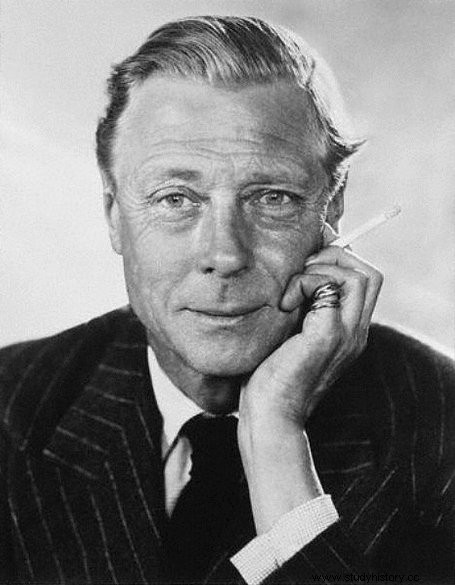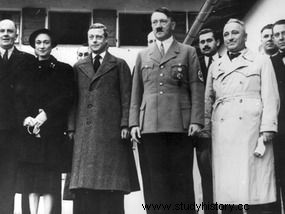One of the questions that always arises when a king abdicates his throne is the problem of the shadow that his presence and activities can pose to the new monarch and for the country. Perhaps one of the clearest examples of the headache that an abdication can cause is the case of the British King Edward VIII.
We are not going to focus in this article on the well-known story of his affair with the American divorcée Wallis Simpson and how the refusal of the British to accept her as queen caused Edward to abdicate on December 11, 1936 and his brother Jorge (the one of the now famous "King's speech"), came to the throne. From this perspective, Eduardo's attitude towards Nazi Germany during the interwar period and World War II has always generated controversy.
 To understand the situation, you have to put yourself in the shoes of a member of the royalty of the time (remember that the greatest barbarities of the Nazis were not yet known). For an early 20th century European monarch who has seen the Russian Tsar and his entire family executed by the Bolsheviks, the Nazis were a holding force that could prevent the spread of communism in Europe and the risk that such spread could presuppose for his crown and even for his life.
To understand the situation, you have to put yourself in the shoes of a member of the royalty of the time (remember that the greatest barbarities of the Nazis were not yet known). For an early 20th century European monarch who has seen the Russian Tsar and his entire family executed by the Bolsheviks, the Nazis were a holding force that could prevent the spread of communism in Europe and the risk that such spread could presuppose for his crown and even for his life.

After World War II, the Duke and Duchess of Windsor ceased to be a problem of State to become a mere inconvenience in questions of etiquette for the British monarchy. However, to this day in his country they still do not forgive Edward for his attitude during the interwar period and the Second World War, as can be seen in this recent and devastating BBC documentary, entitled Edward VIII, The Nazi King .
Some go even further:the English historian Martin Allen in his book The Traitor King, maintains that during his inspection of the French defenses Eduardo acted as a spy for the Nazis and provided them with fundamental information about the defensive systems of the Maginot Line; I must say that, in my opinion, the arguments and evidence that lead Allen to support this accusation are not at all conclusive.
What the story of Edward VIII shows us is that when a monarch's accession to the throne is not caused by the death of his predecessor but by his abdication, the attitude of the monarch who has renounced his crown can pose a serious problem. for his successor and for his country.
